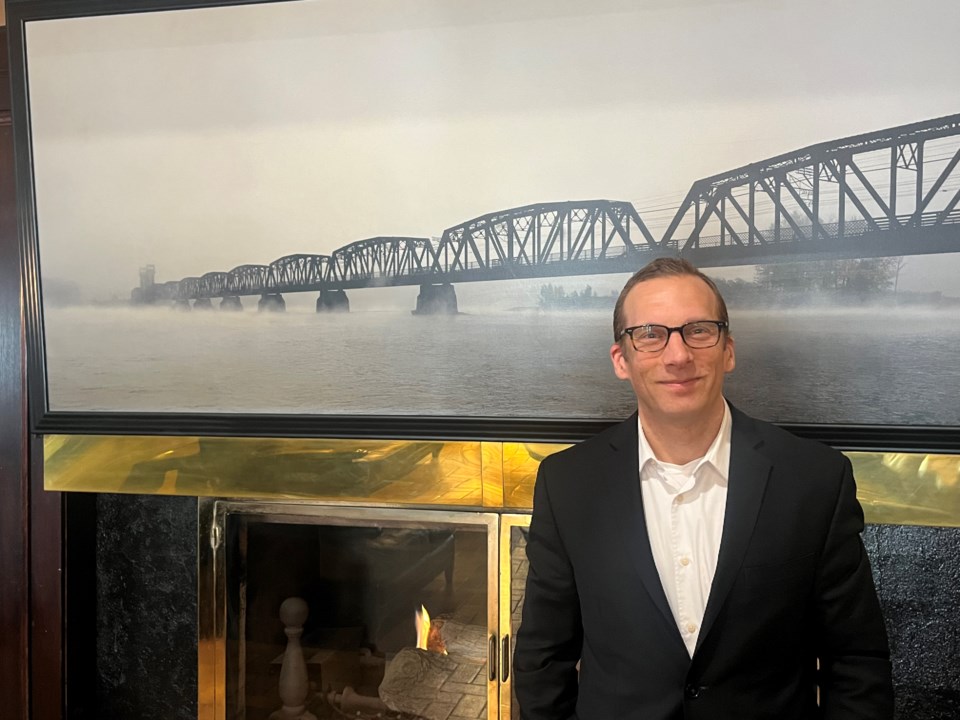Adam Chapnick is a professor of defence studies at the Royal Military College of Canada and deputy director of education at the Canadian Forces College.
In a recent visit to Prince George, he spoke to locals at Coast Inn of the North about his vision for the past, present and future of Canadian foreign policy and his book Canada First, Not Canada Alone.
“I wrote a book with another academic named Asa McKercher," he said. "It's a history of Canadian foreign policy focused on the last 100 years or so. It makes a case for how we move forward in the future."
Now he travels the country to talk about the book and its message.
His talk was arranged by the local branch of the Canadian International Council.
"I've been speaking to a number of branches of the Canadian International Council, which is a think tank that has 18 or 19 branches across the country," he said, adding that he presents the book "in the context of the arrival of a new administration in the United States that is not as friendly to Canada and increased interest in Canada and its place in the world.”
Chapnick supports advancing Canada's position on the world stage and got the title for his book from the principles of advancement from a former Canadian assistant deputy minister.
“In 1954 there was an assistant deputy minister named John Holmes,” said Chapnick. “He gave a talk at the Canadian Army War College, and he said there were six principles of Canadian foreign policy. The first one was Canada first, not Canada alone. What he meant by that was that we always had to look out for ourselves first. We couldn't be a selfless country. No countries are selfless. We have interests. We have to pursue them. But in Canada's case, you couldn't pursue Canadian interests in the world successfully without working with other countries. We just weren't big enough and powerful enough to fulfill our needs on our own. and we always had to be looking for partners and allies.”
Chapnick told The Citizen that in a time where the relationship with one of our best allies, the U.S., is crumbling, our country needs to take action first.
“I don't think that soul searching is the solution as much as action is the solution, said Chapnick. “We need to find other places to sell our goods and services. We need to make sure that we have military partnerships that work, and we need to convince the Americans that what they're doing isn't in their interest or our best interests.”
Chapnick added that Canada should approach mending our relationship with the States from the principal of doing no harm.
When it comes to defining our current approach to foreign policy, Chapnick said that Canada has been falling short.
“We have more rhetoric than we have action in the last two decades,” said Chapnick. “We've talked a better game than we have played. At the same time, generally speaking, if you peel away the rhetoric, we're a pretty pragmatic country. We recognize that we have two general baskets of interests. One is a good relationship with the Americans and one is a liberal democratic world order that's based around rules and organizations that include many members. So we're not stuck in these one-on-one situations where we're the smaller power.”
The Citizen asked Chapnick what his ideal version of Canadian foreign policy would look like. He responded by stating that his vision involves a decentralized Canada with more confidence.
“It would look like a foreign service that had significantly more confidence to speak out and do things instead of being forced into a situation where so much in this country is centralized at the top,” he said. “We have an incredibly capable diplomatic corps and we need to set them free and allow them to really do their thing.”



